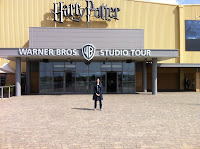Feeling old again this week… another story from my undergraduate
days…
2) Auroral Opportunity
I've always wanted to see the Aurora (Borealis or Australis). I've
seen pictures of course, and videos, but when I was in my first year at
university I got the chance to go to Kiruna in Northern Sweden to see it for
myself. The course was run by Umea University and was called ‘Arctic Science’.
It promised to cover topics as varied as the Physics of Snow, the Aurora and
climate change and also included a visit to the Ice Hotel. I jumped at it! Once
I’d got the money together (the course was free but you had to pay for your own
accommodation and food while you were there) and worked out that it was going
to be possible for me to fit the trip in (it wasn’t part of my degree at
Imperial but luckily it fell on the last week of the Christmas holidays) I sent
off my application and was lucky enough to be accepted.
For those of you that don’t know about the aurora here’s a really
brief outline of the physics: particles blow out of the sun on a magnetic field
all the time (the solar wind). Often these particles travel towards Earth but
usually our magnetic field protects us from them. On some occasions the
magnetic field in the solar wind joins up with the Earth’s magnetic field
(called reconnection). The particles in the solar wind can then travel down the
Earth’s magnetic field lines (most easily at the north and south poles) and hit
the atmosphere. This ionises and excites particles in the Earth’s atmosphere
and makes them emit the light that we see as the aurora. The different colours
come from different elements in the atmosphere being ionised – mainly red/green
for Oxygen and blue for Nitrogen. You can also see aurorae from space on Earth
and on other planets with a magnetic field (e.g. Saturn). Studying aurora tells
you a lot about which charged particles you have in your system (for example
you can spot footprints of the moons of Saturn in the planet’s aurora).
The Arctic Science course was amazing. At that point I’d never been
on an aeroplane by myself, I’d never been north of Scotland and I’d never been
on a sleeper train (which turned out to be the easiest way to get to Kiruna
from Stockholm, where you can easily get an international flight) so the whole
experience of getting to the Arctic Circle was completely daunting. I also
didn’t speak Swedish (except hello, sorry, please and thank you) but everyone
was so kind and I was lucky enough to bump into a retired Swedish-English
teacher on my journey, who showed me which platform to wait on.
The whole trip was really memorable. We went to Ice Hotel- a
hotel/huge artwork that has to be rebuilt every winter because it melts in the
summer months. Thousands of artists craft beautiful beds, statues, archways and
even a wedding chapel made entirely of ice! We also got to go dog sledding in
the evening, which was definitely my favourite part of the trip. It was so cold
we had to wear full body suits and balaclavas that iced up as you breathed. The
tour was over a frozen lake and you could hear the ice cracking as the sled
went over it. We stopped half way around to warm our hands by a fire, rest the
dogs and eat Reindeer meat.
The science was interesting too. We learnt lots about the
different structures in the Aurora and other arctic phenomena, including Noctilucent
clouds (the highest clouds on Earth) and Sun Dogs (phantom Sun’s created when
the atmosphere acts like a lens). We still don’t know a lot about how mechanisms
that generate the aurora and lots of research is looking into the physics
responsible for the finer detail. We also had an interesting debate about
climate change that turned into quite an enthusiastic argument, as we had a
couple of sceptics in our group. I also found it interesting to learn about the
growth of ice crystals. Unfortunately I didn’t get to see the aurora, as I went
when solar activity was very low (solar minimum) so no reconnection occurred.
When I came back I was thrown straight into my first round of
university level exams! Over the next month I finished off the remaining
coursework and gained my 4.5ECTS points for the Arctic Science course (only
valid on the European university system – but I still wanted to finish the
course). In the end I passed the course and was left with happy memories of my
time in the Arctic Circle, a pair of fetching fluffy snow-boots and a bright
orange snow jacket. As far as I know the course is still running so if this is
something you’re interested in it is definitely worth a look (http://www.irf.se/~carol/winter/). In 2013/2014 we’ll probably be roughly
at a peak in the solar cycle so you should have a much better chance than I did
of seeing the Aurora, but I’m not making any promises!
 |
| My view from the dog sled |










